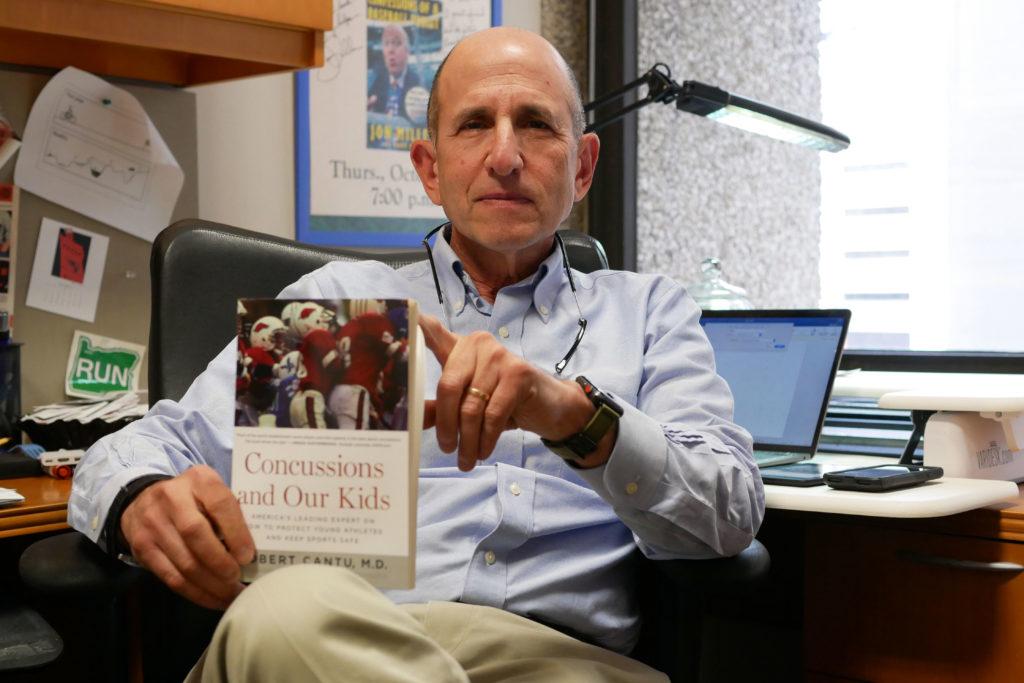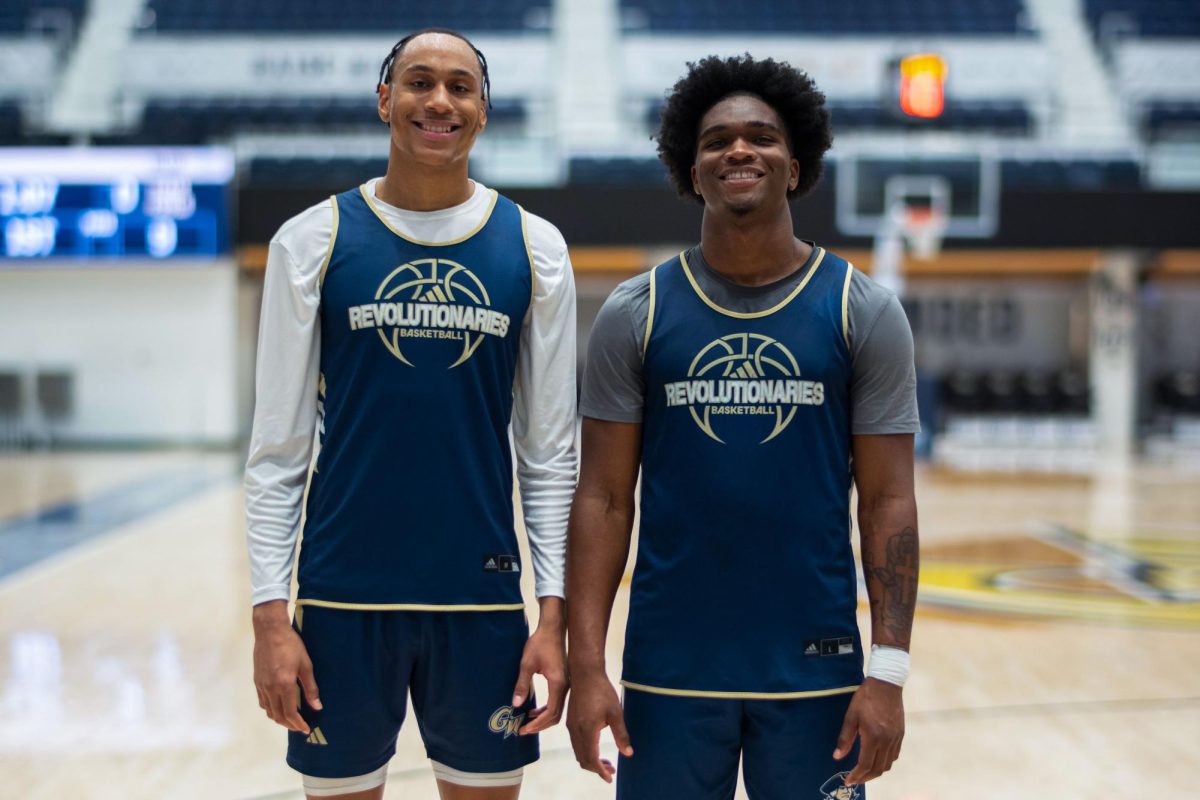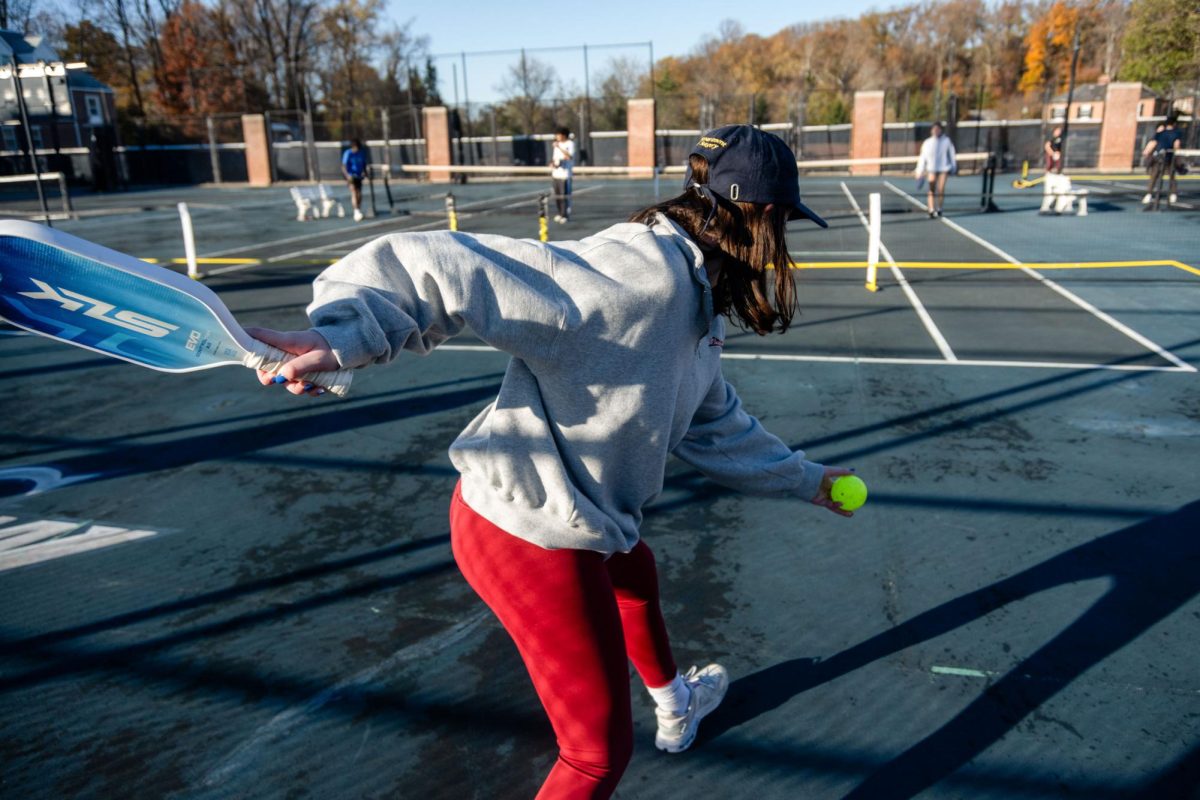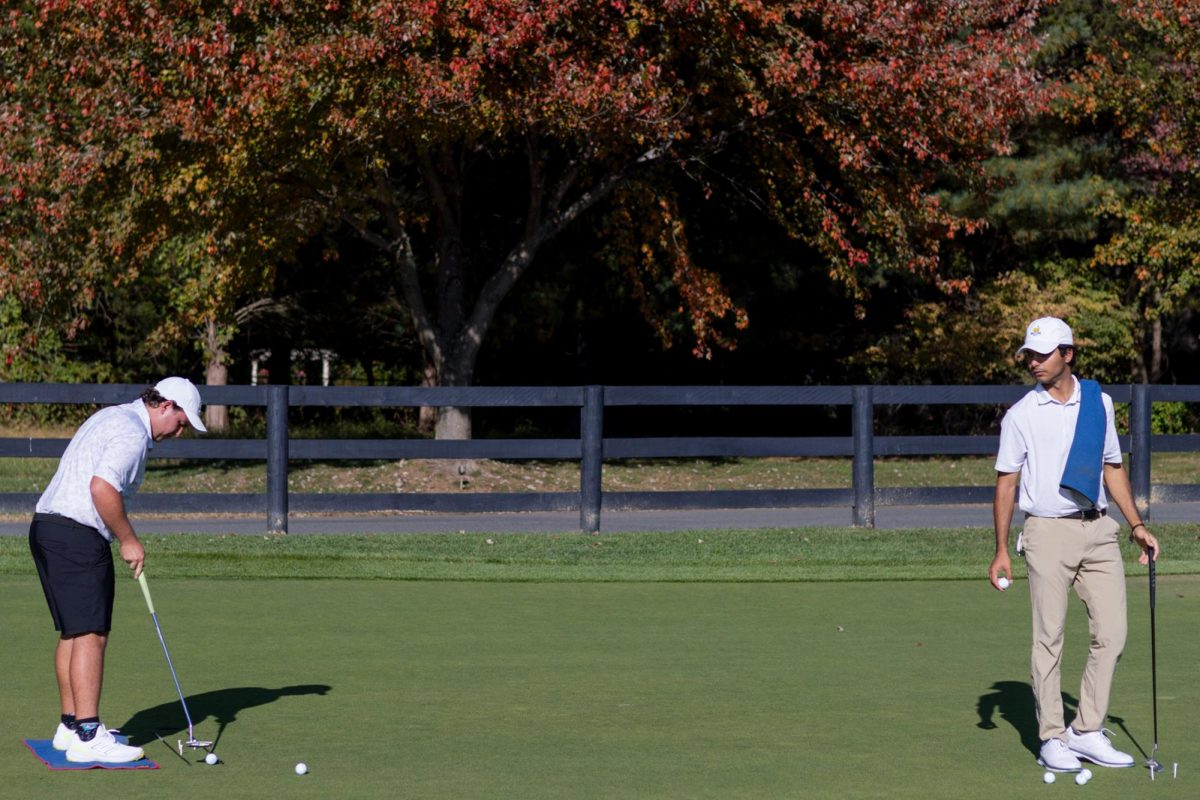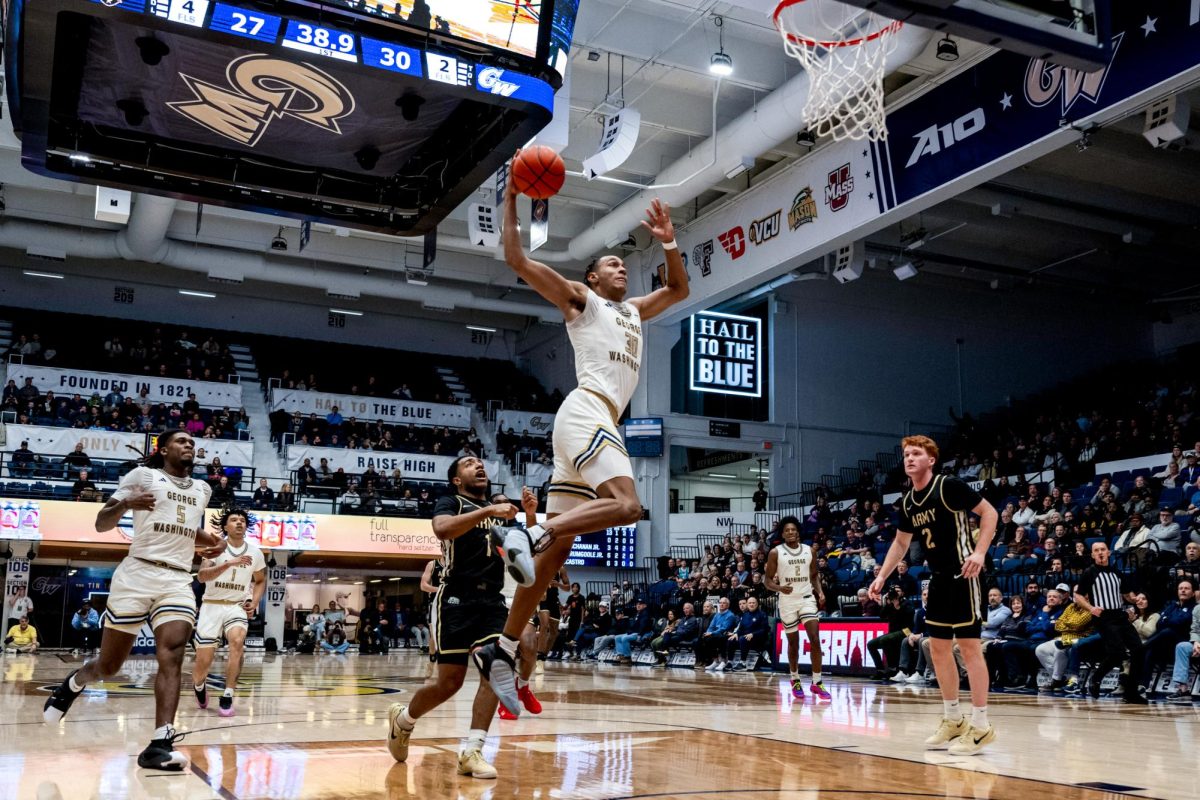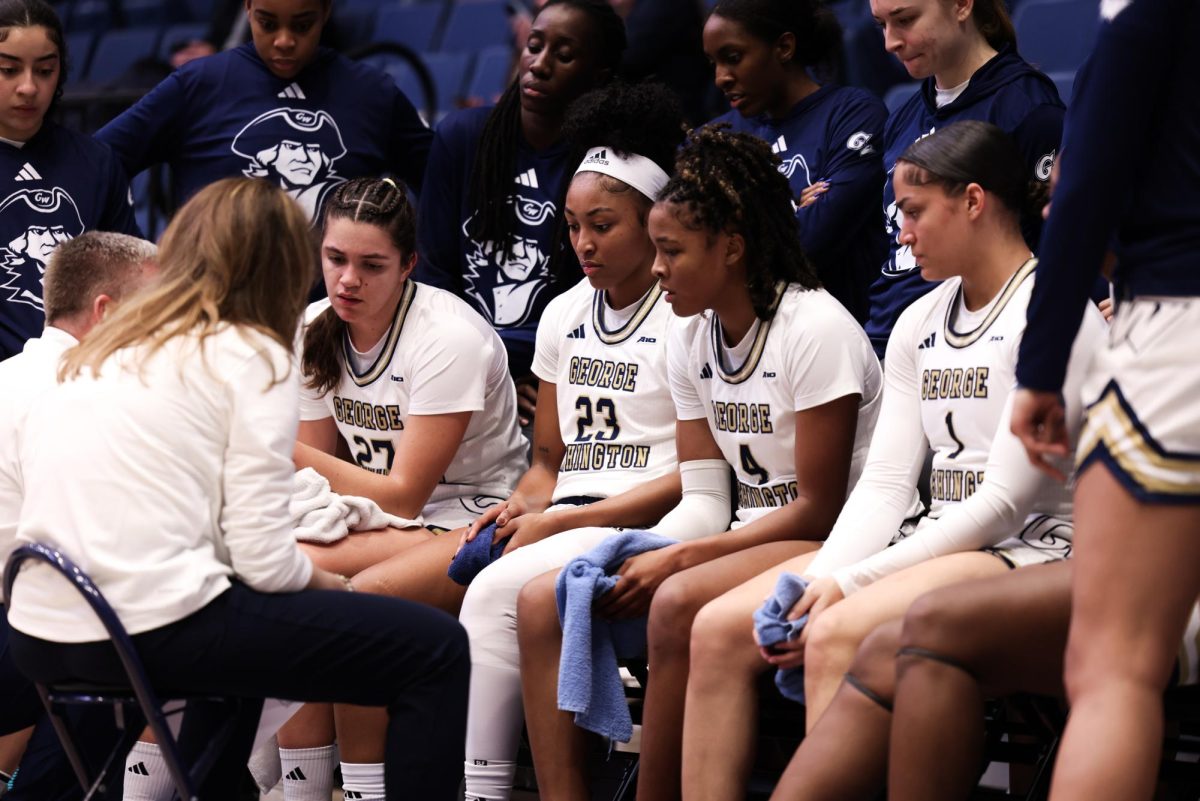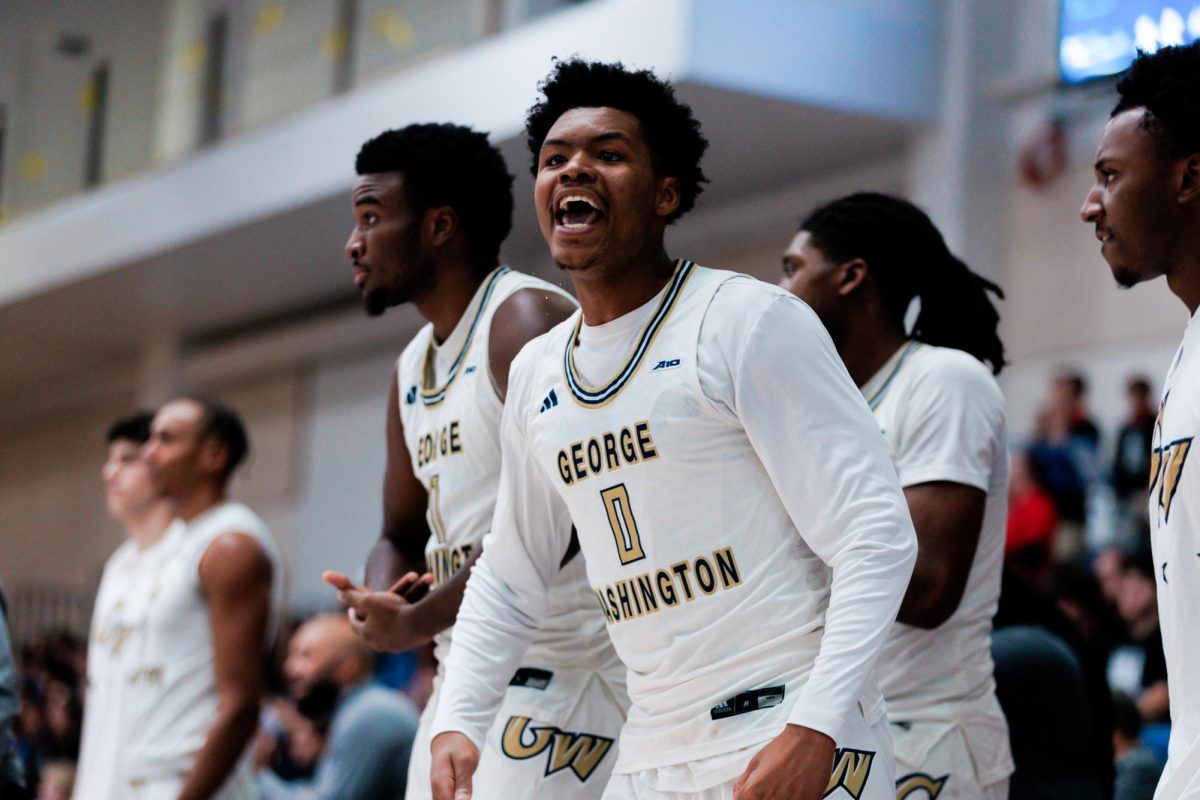After spending three decades as a sports journalist and author, Mark Hyman, an assistant teaching professor of sports management, did not intend to change career paths.
But he said writing can be a “lonely pursuit,” and when his son, a GW graduate, described a sports management course he enjoyed, Hyman sought out teaching opportunities that put his expertise to use. Hyman, who has now taught at GW for nine years, said he prioritizes educating his students about sports media, finance and youth sports through his journalism experience.
“The best way to describe it would be ‘a great second act,’” Hyman said. “When I began, it wasn’t with the intention of being a full-time professor. I thought that I would continue as a journalist and teach an occasional course. But as time went on, I began to see myself as much of an educator and a professor as a journalist, and my identity kind of shifted a little bit.”
He said he provides his students with hands-on learning opportunities, whether it be through meeting 2018 Olympic figure skater Adam Rippon or visiting Arizona for a Major League Baseball training trip.
“I ask my students, ‘Who does not want to participate today?’ And that’s the student I’m going to make sure speaks up,” Hyman said. “I tell students, ‘You’re going to be an active participant in this class because that’s my style’ – it’s a conversational, informal style. I never would stand up in front of the class with a point and PowerPoint for 45 minutes.”
Prior to his career in academia, Hyman’s work was published in The New York Times, Sports Illustrated, Time.com and The Washington Post. He received second and third place awards from the Associated Press Sports Editors for various sports stories, one of which brought about the suspension of Southern Methodist University’s football program.
Hyman said his career in journalism informs his teaching style, encouraging students to approach topics in the sports world from the perspective of a journalist. Classes will visit the African American History Museum to research the legacy of black athletes, speak to legislators on Capitol Hill about issues like sports gambling, and interview guest speakers about their roles in the sports community, Hyman said.
“My curiosity about these issues as a journalist translates well into the classroom,” Hyman said. “I also like to ask questions and I think that’s probably not a bad credential when you’re standing in front of a room.”
The majority of Hyman’s writing throughout his career is concerned with the youth sports phenomenon. In 2009, he published a book called “Until It Hurts: America’s Obsession with Youth Sports and How It Harms Our Kids,” which investigates the culture of injury and extremism in youth sports.
His most recent book, published in 2012, explores the controversial issue of concussions in sports. Hyman said he hasn’t watched a National Football League game in more than three years because the organization normalizes tackle in youth sports.
Hyman said he takes full advantage of the athletic department’s close proximity to the School of Business, pulling guest speakers like athletic director Tanya Vogel and women’s basketball head coach Jennifer Rizzotti. He added that they’ve assisted with classes’ long term projects, like the implications of paying collegiate athletes, by serving on a panel of judges for the final in-class debate.
“There are lots of occasions when coaches and administrators and even athletes will come into class as guest speakers,” Hyman said. “We value that and benefit tremendously from it on a couple of occasions.”
He added that his students act as consultants for some GW sports teams. In his Sports Media and Communication class, students analyze GW sports’ social media accounts and research the most effective communication strategies for each team. Students present their recommendations to teams’ social media managers, he said.
Kate Southall, the athletic department’s director of marketing, strategy and fan engagement, said in an email that Hyman’s class consulted on Twitter and Instagram accounts for George’s Army, GWTix and the GWEquipment last semester.
“The student groups did a lot of research comparing our social media accounts to similar ones in the industry, which was very helpful as it’s often difficult to do that kind of research in season,” Southall said.
Hyman said in his video production course, students have the chance to work as camera operators during GW’s ESPN+ game broadcasts. Hyman added that these opportunities allow for a symbiotic relationship between his classes and the athletic department.
“Our students are getting very practical training and developing these skills, and athletics are benefiting because they’ve got this pipeline of young camera operators they can turn to,” Hyman said.
Hyman loves baseball, as his office makes clear. The space is lined with books and nostalgic baseball memorabilia spanning dozens of teams. He incorporates this passion into his classes, taking students to China to observe and analyze Major League Baseball’s efforts to grow the sport abroad and to Arizona to investigate the financial investment and return of spring training facilities.
“We’ll visit three spring training sites and meet with owners, field managers, front office officials,” Hyman said. “People who are deeply involved in analytics, player personnel. We’ll attend the World Baseball Classic qualifier, so we’ll see maybe Pakistan play Germany. We’ll see some games, but its’ really about the business of spring training.”


